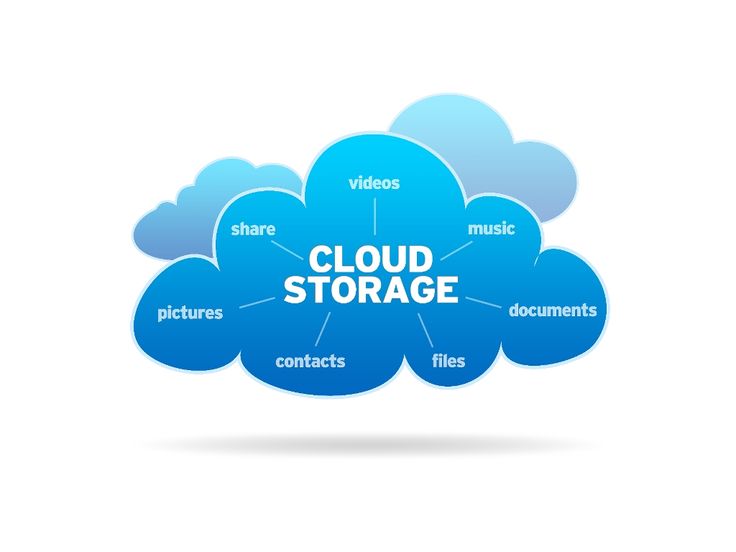Discover How Cloud Storage Transforms the Way You Organize and Protect Your Data
Cloud storage has become an essential part of modern digital life. It allows individuals and businesses to securely store, access, and share data from anywhere, at any time. Whether you’re backing up personal photos, managing large work projects, or collaborating with global teams, cloud storage provides flexibility, security, and convenience. Understanding how cloud storage works—and how to choose the right service—can help you simplify your digital world and protect your valuable information with confidence.

1️⃣ What is Cloud Storage?
Cloud storage refers to a digital service that allows users to save data on remote servers instead of physical drives like USBs or hard disks. These servers are maintained by specialized providers who ensure your data remains secure, organized, and accessible online. Essentially, it’s like having a digital locker that you can open anytime, from any device, as long as you’re connected to the internet.
By storing your files in the cloud, you can reduce your dependence on physical devices, prevent data loss due to hardware failure, and access important documents or media from your phone, laptop, or tablet. This makes cloud storage an integral tool for both personal convenience and professional efficiency.
2️⃣ How Does Cloud Storage Work?
When you upload a file to a cloud storage platform, it is transferred through the internet to secure servers managed by a provider. The file is often split into encrypted segments and stored across multiple data centers for redundancy. This means that even if one server fails, your data remains safe and retrievable from another location.
Cloud storage providers typically use advanced encryption protocols, multi-factor authentication, and secure data transfer systems to ensure your information remains private. Users can also control access by setting permissions—deciding who can view, edit, or download shared files.
This combination of technology and control makes cloud storage not only a safe alternative to traditional storage but also a smarter, more resilient approach to managing digital information.
3️⃣ The Key Benefits of Using Cloud Storage
There are several important advantages to using cloud storage that make it valuable for both individuals and businesses:
-
Accessibility: You can access your data from anywhere with an internet connection—whether you’re at home, in the office, or traveling abroad.
-
Scalability: Cloud storage plans allow you to easily expand your capacity as your data grows, without having to buy new hardware.
-
Data Backup and Recovery: Many services automatically back up files, reducing the risk of permanent loss in case of accidental deletion or device damage.
-
Collaboration: Teams can work together on documents, presentations, and projects in real-time, enhancing productivity and reducing delays.
-
Cost Efficiency: You only pay for the space you use, eliminating the need for expensive local storage solutions.
These benefits make cloud storage a key technology for modern users seeking flexibility, security, and efficiency.
4️⃣ Types of Cloud Storage Available
Cloud storage comes in several forms, each serving different purposes depending on user needs:
-
Personal Cloud Storage: Designed for individuals, this option lets you store and sync personal photos, videos, and documents across devices.
-
Business Cloud Storage: Provides advanced collaboration tools, administrative control, and security compliance for organizations.
-
Hybrid Cloud Storage: Combines local and cloud-based systems, allowing businesses to manage sensitive data internally while leveraging the scalability of the cloud.
-
Public Cloud Storage: Shared infrastructure that offers affordability and convenience for users with general storage needs.
Understanding which type best suits your lifestyle or business model helps you make informed choices about how to manage data efficiently.
5️⃣ Security in Cloud Storage
One of the most common concerns about cloud storage is security. Reputable cloud providers use multiple layers of protection, including:
-
Data Encryption: Files are encrypted during transfer and while stored on servers.
-
Access Control: Users can set passwords, permissions, and sharing restrictions to maintain privacy.
-
Regular Audits and Monitoring: Data centers are monitored 24/7 to detect unauthorized access attempts.
-
Redundancy: Copies of data are stored across different physical locations to prevent loss from system failures or disasters.
While no system is entirely immune to cyber risks, cloud storage generally offers stronger, more consistent protection than most personal devices.
6️⃣ How to Choose the Right Cloud Storage Service
Selecting a cloud storage service depends on your specific goals and habits. Here are some factors to consider:
-
Storage Capacity: Estimate how much data you need to store now and in the future.
-
Ease of Use: Choose a platform with an intuitive interface and mobile compatibility.
-
Security Standards: Verify that the provider uses strong encryption and adheres to data protection laws.
-
Collaboration Tools: If you often work in teams, ensure the service supports real-time document sharing and editing.
-
Pricing and Flexibility: Compare pricing models to ensure scalability and long-term value.
Evaluating these aspects can help you identify a cloud storage solution that aligns with your needs, whether for personal use or business growth.
7️⃣ The Role of Cloud Storage in Everyday Life
Cloud storage has quietly become part of everyday routines—whether it’s automatically backing up your smartphone photos, saving work presentations, or syncing playlists across devices. It simplifies life by removing the anxiety of losing data and making it effortless to organize digital assets.
Students use cloud storage to share research projects; remote teams rely on it for seamless collaboration; and families use it to preserve memories safely over the years. This blend of convenience and peace of mind is what makes cloud storage so transformative.
8️⃣ The Future of Cloud Storage
As digital data grows exponentially, cloud storage continues to evolve with new technologies like artificial intelligence and edge computing. Future systems may predict user needs, automatically categorize files, and enhance data retrieval speed.
Moreover, sustainability is becoming a major focus—many cloud providers are now using renewable energy sources to power data centers, reducing the environmental impact of digital infrastructure. This evolution not only improves efficiency but also aligns technology with eco-conscious values.
9️⃣ How Cloud Storage Supports Remote Work and Global Collaboration
The rise of remote work has highlighted the importance of cloud-based tools. Cloud storage enables global teams to collaborate without boundaries—sharing updates, accessing real-time files, and maintaining workflow continuity even across time zones.
This has made cloud technology essential to modern work culture, supporting not only businesses but also freelancers, educators, and creators around the world.
🔟 Conclusion: The Power of Secure, Smart, and Sustainable Storage
Cloud storage is not just about saving space—it’s about simplifying how we live and work in a digital-first world. It enables secure access, collaboration, and continuity, all while adapting to our changing needs.
Understanding how it functions, recognizing its benefits, and learning to choose the right platform empowers individuals and organizations to take control of their digital lives. Cloud storage represents the next step in the evolution of how humans create, share, and protect information—anytime, anywhere.







